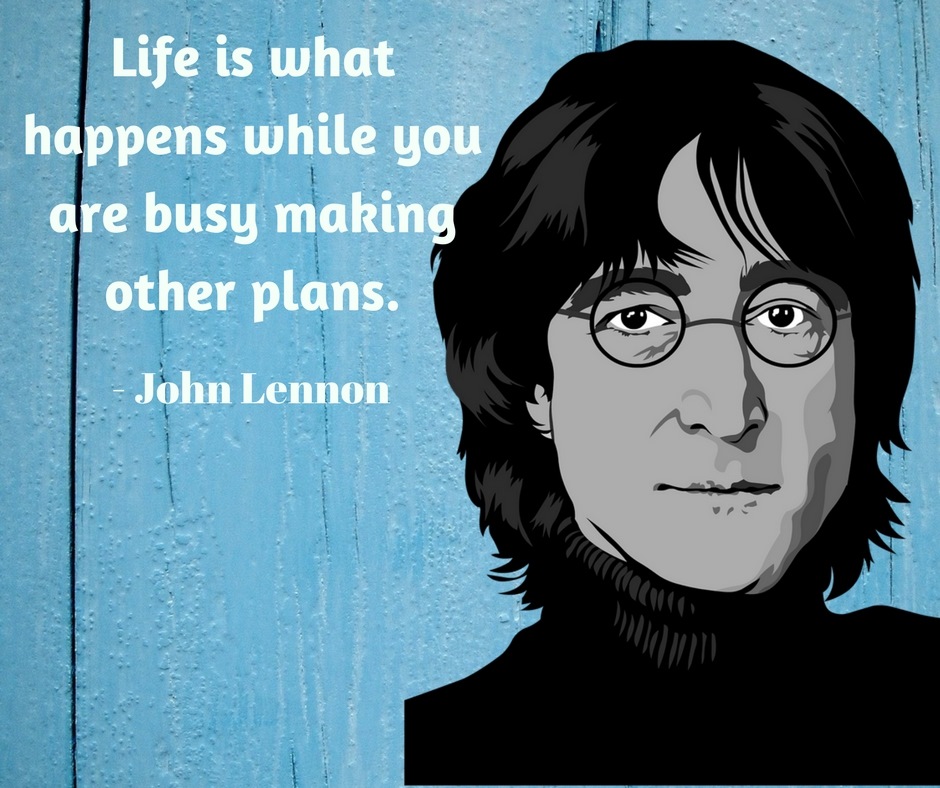6 Tips for Setting (and Working Towards) Goals Despite the Unpredictability of Chronic Illness

“That’s why you should never make plans,” she said. “You never know what might happen.”
I used to be in that place. It’s a place where you are afraid of planning anything, because of the unpredictability of chronic illness. If you never know how you’ll feel tomorrow, even in an hour from now, forcing you to cancel what you had to do again and again and again… well, it becomes utterly depressing.
So you don’t. Make plans. You surrender your goals, saving them for later, some day in the future when things are better. But here’s the thing. You don’t know when that time will be. Hopefully next week, but it could be next month or next year or five years from now. So this thing you wanted to do gets delayed and delayed and delayed, and you live only within the day-to-day existence of chronic illness.
And that’s not a great place to live.
I’d like to argue that setting a goal and working towards it, even if slowly, is part of what helps you create a life that exists outside of your condition. That it is an important, even essential, part of what you are and who you are. Because you are not just chronic illness, you are the unique and wonderful you that had a life before, and have one now, even with this condition that shadows your every step.
Here are 6 tips for how to set a goal and work towards it when your day is as unpredictable as the weather in April:

Make a plan
Without a plan, your goal is a dream of what you hope will happen. Unless you have a personal fairy godmother on call, you will have to do the work yourself. Sit down with a pen and a notebook and think about the high-level steps you have to take to get from where you are now to making your dream or goal a reality. Don’t put any timelines on the plan – that will just sidetrack you into a morass of worrying (or is that just me?).
Break it down into smaller bites
Say your goal is this: write a book (mine is). It sounds wonderful, but is also so big and overwhelming that it’s hard to know where to begin. Or you might start and then want off because you’re stuck.
Yes, that has happened to me. More than once.
Instead, break it down into small bites. Maybe it’s writing a chapter a week or a month, depending on how much a chronic illness is affecting your day-to-day. break your goal into smaller components, then break those down again. Whatever your sub-goals are, make sure they are easily attainable and assume there will be days when you don’t have the energy, time, or general wherewithal to do anything active. For instance, when I prepared to write Your Life with Rheumatoid Arthritis, my goal was to spend one hour a day doing something writing-related. It could be actually working on writing a chapter, but if my RA was determined to get in the way, it could also be thinking about writing or reading about writing.

Prepare for getting sidetracked
John Lennon was right. It is inevitable that life and your chronic illness will have opinions about what you should be doing at various times, which may very well derail your plan and timelines. It has happened multiple times whenever I am writing a book and every time, I have an extended tantrum, then try to tell myself that “I am exactly where I need to be.” The key is to not give up. Allow whatever is happening to run its course and once things have simmered down again, get back on track.
Review and revise
The sidetrack can actually be helpful in getting to your goal. Whenever I get derailed from my perfect action plan to write a book in two nanoseconds, I will later realize that the temporary stop ended up being a good thing. It might have allowed me to do research on a particular issue, further develop my ideas, or in other ways improve the goal.
The path to any goal, and the goal itself, will need to be reviewed, revised, and fine-tuned frequently. Instead of railing about the perversities of fate (ok, maybe rail a bit), use those sidetracks deliberately to make sure what you’re doing will still help you achieve your goal, even that the goal is still what you want to do.
Celebrate milestones
Build celebrations into your plan. In fact, celebrate as often as possible – whether it is one of the tiny ones, a medium-sized goal, or the broader steps towards achieving The Big One, regular celebrations can help you keep motivated. This could be especially important when your chronic illness imposes more stop-and-go that might otherwise happen.
At some point during the journey towards achieving your goal, it will no longer be exciting. It might even become a slog. And when things are a slog, it is very easy to find something shiny and get distracted. By celebrating even the small achievements, you make the journey exciting, even during the tedious steps.
Find your peeps
As in all things, finding a buddy, mentor, or community helps you during the rough times. Poke around on social media to find others who are working towards achieving the same goal as you, either with or without a chronic illness. Being connected to others who know what you’re going through provides a support that no one else can give you.
What goal would you like to accomplish?
2 Comments
Read More
Discover what else I've been writing about...
















I love that John Lennon lyric. That can be dated back to the 1950’s in readers digest. But oh John Lennon said it so much better.
I did not know that. Often is not necessarily the words, but how you say the that can make them stick in people’s minds.